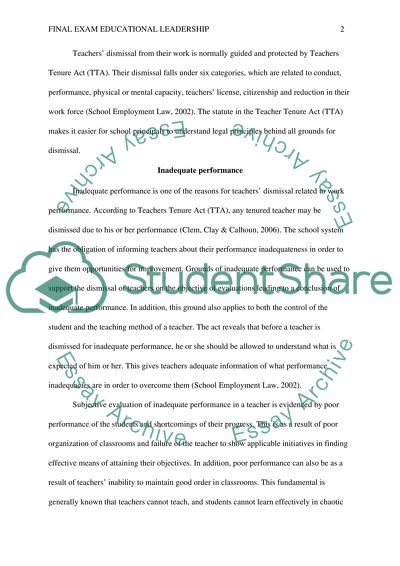Cite this document
(“Final Exam Educational Leadership Research Paper”, n.d.)
Retrieved from https://studentshare.org/education/1453891-final-exam-educational-leadership
Retrieved from https://studentshare.org/education/1453891-final-exam-educational-leadership
(Final Exam Educational Leadership Research Paper)
https://studentshare.org/education/1453891-final-exam-educational-leadership.
https://studentshare.org/education/1453891-final-exam-educational-leadership.
“Final Exam Educational Leadership Research Paper”, n.d. https://studentshare.org/education/1453891-final-exam-educational-leadership.


